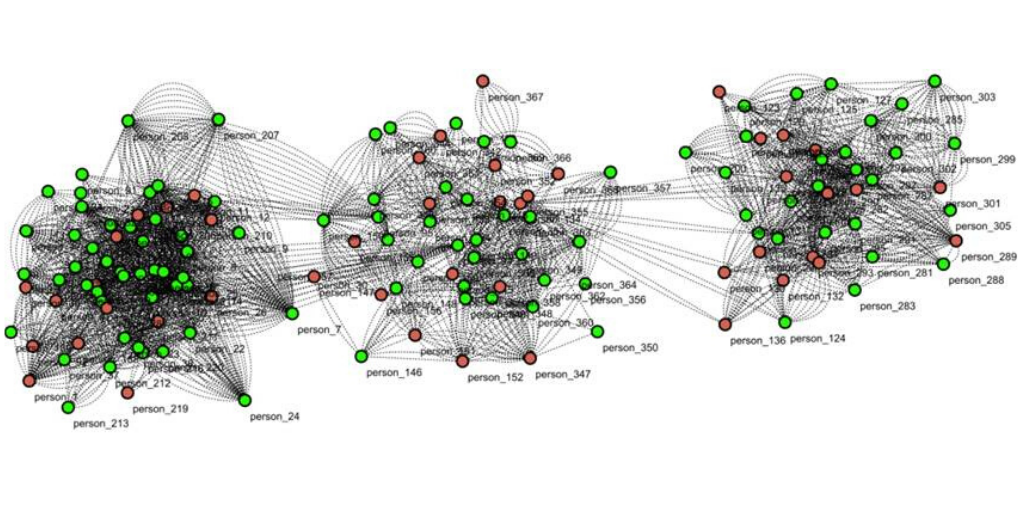
June 3, 2020
Researchers from Instituto de Física de Cantabria (IFCA, a joint centre of Universidad de Cantabria-CSIC) Pablo Martínez Ruiz del Árbol and Lara Lloret Iglesias, have developed a model of propagation of diseases such as coronavirus, which allows simulation of possible strategies of confinement and testing of population in the face of an epidemic. This work, developed over last two months, allows the use of data obtained to estimate the probabilities of infection in different scenarios and is, therefore, useful for decision making in situations such as those caused by Covid-19.
Considering "a population with autonomous individuals, with capacity to carry out social activity - work and leisure -", explains Martínez Ruiz del Árbol, "we are able to test different strategies to try to contain the spread. The researcher Ramón y Cajal at IFCA, points out that in this work, entitled "Comparison of epidemic control strategies using agent-based simulations", "we have created an epidemiological observatory where we store information on these individuals or agents and test ways of restricting or confining their movements".
Her colleague Lara Lloret, post-doctoral researcher at CSIC at IFCA, details that the basic strategy is "for a person with symptoms to be quarantined on their own, but they have the problem of asymptomatic. "Others would be to test massively, randomly, the entire population, make them to families or people living with infected, or to the one you have registered in your contact tracking application". In some countries, the latter has led to an intense debate on appropriateness of its use.
The epidemiological modeling tool allows us to observe and study dynamics of infection, noting the "enormous dependence on time” that passes between a person becoming infected and experiencing symptoms. "If that time is high, it is almost impossible for a strategy to stop epidemic completely," scientists say. In addition to testing scenarios with disparate percentages of asymptomatic patients, they have studied the effectiveness of strategy based on installing that tracking app. "There has to be a minimum of 60%; if you set it up at 25% like in Singapore, it's not very efficient and there are other better strategies," such as testing co-habitants.
In addition to epidemiological modelling, researchers have built a mathematical model that is capable of exploiting information collected at observatory to obtain basic parameters of this epidemic, such as the capacity to spread or the presence of infected people, despite not having been tested.
News on the website of the University of Cantabria
https://web.unican.es/noticias/Paginas/2020/junio_2020/Investigadores-del-IFCA-desarrollan-un-modelo-que-permite-simular-estrategias-de-confinamiento-y-testado.aspx
